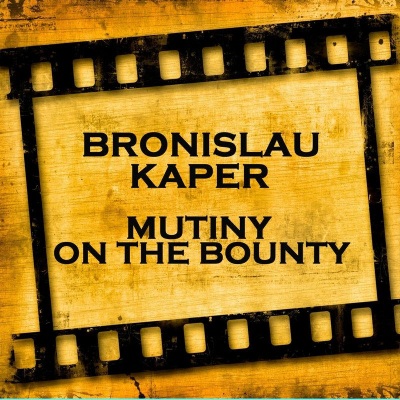
Mutiny On the Bounty
翻拍自经典同名的影片,是当时电影界继《埃及艳后》一片最令人咋舌的烧钱大片,上映之后获得不少好评。 Mutiny on the Bounty (1962) was a gargantuan roadshow production from the end of the Golden Age of Hollywood. The film's true-life story is known the world over: how First Officer Fletcher Christian led a revolt against the tyrannical Captain William Bligh on the H.M.S. Bounty in 1789. The story has been filmed multiple times—most famously by M-G-M in 1935, and more recently in 1984—and the 1962 production was M-G-M's attempt to recapture their earlier success, with Marlon Brando as Christian and Trevor Howard as Bligh. The film made more news for its behind-the-scenes troubles than on-screen drama: Brando was famously difficult and the production went over-schedule and over-budget, along with Fox's Cleopatra nearly sinking the studio system. Although originally assigned to Miklos Rozsa the score was transferred to Bronislau Kaper, who had been at M-G-M so long that he had written the love song for the 1935 production. Mutiny would be Kaper's last work at the studio and a fitting musical triumph—one of the essential works of the "roadshow" era of the Golden Age, and a classic symphonic score. The score features three main themes: the mammoth, seafaring music for the Bounty itself; aggressive, menacing material for the mutiny; and a South Seas-flavored love theme (with lyrics by Paul Francis Webster). Huge musical setpieces accompany the Bounty's setting sail and ocean voyages; the crew's frolicking with the native Tahitians; the pursuit of a band of deserters; and the ship's eventual destruction. The score is large-scale in every way, and previous releases have merely hinted as to its power and scope. With so much music in the film, it was a given that this release would be a 2CD set. However, the film's post-production was so protracted that each and every cue was recorded two and sometimes three times—first in March 1962, then in June, and again in September and October. Fans have long known about the two different endings to the score which appeared on different editions of the LP—those are her—and so are each and every alternative orchestral cue, along with as much of the source music as would fit. This release features three programs split over three CDs: Disc one and the beginning of disc two features the complete score as it is heard in the finished film. The remainder of disc two and beginning of disc three features a complete "alternative score" from the initial recording sessions—as it was intended from March 1962. The remainder of disc three features album versions, additional source music, and additional alternative orchestral cues. All told, it is four hours of music on three CDs, all in stereo and remastered from the original six-track 35mm film. The release comes in a "clamshell" jewel box with the three CDs and booklet inside. Liner notes are by Jeff Bond and Lukas Kendall. Due to the size of the production, the price is $34.95—and worth every penny!
